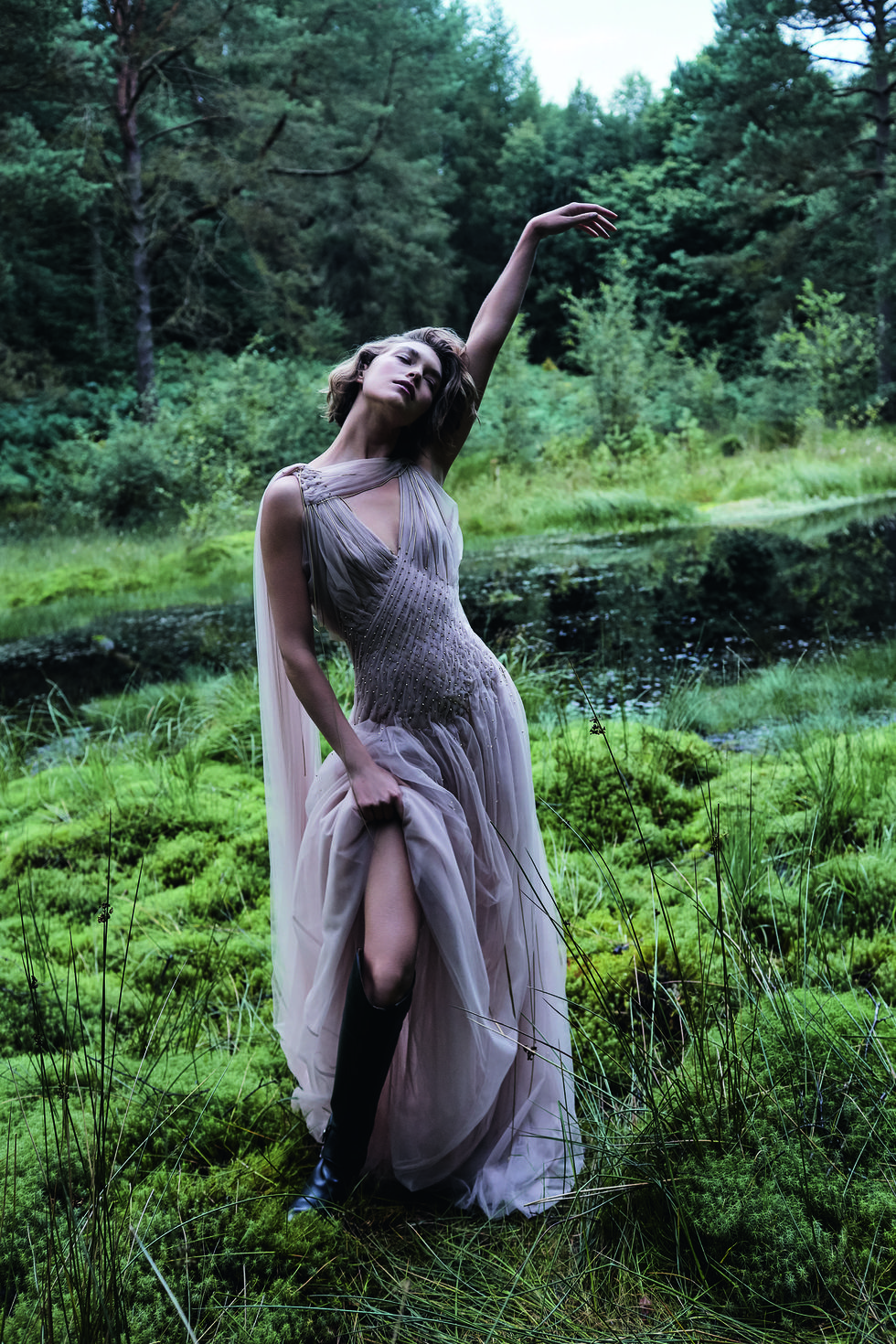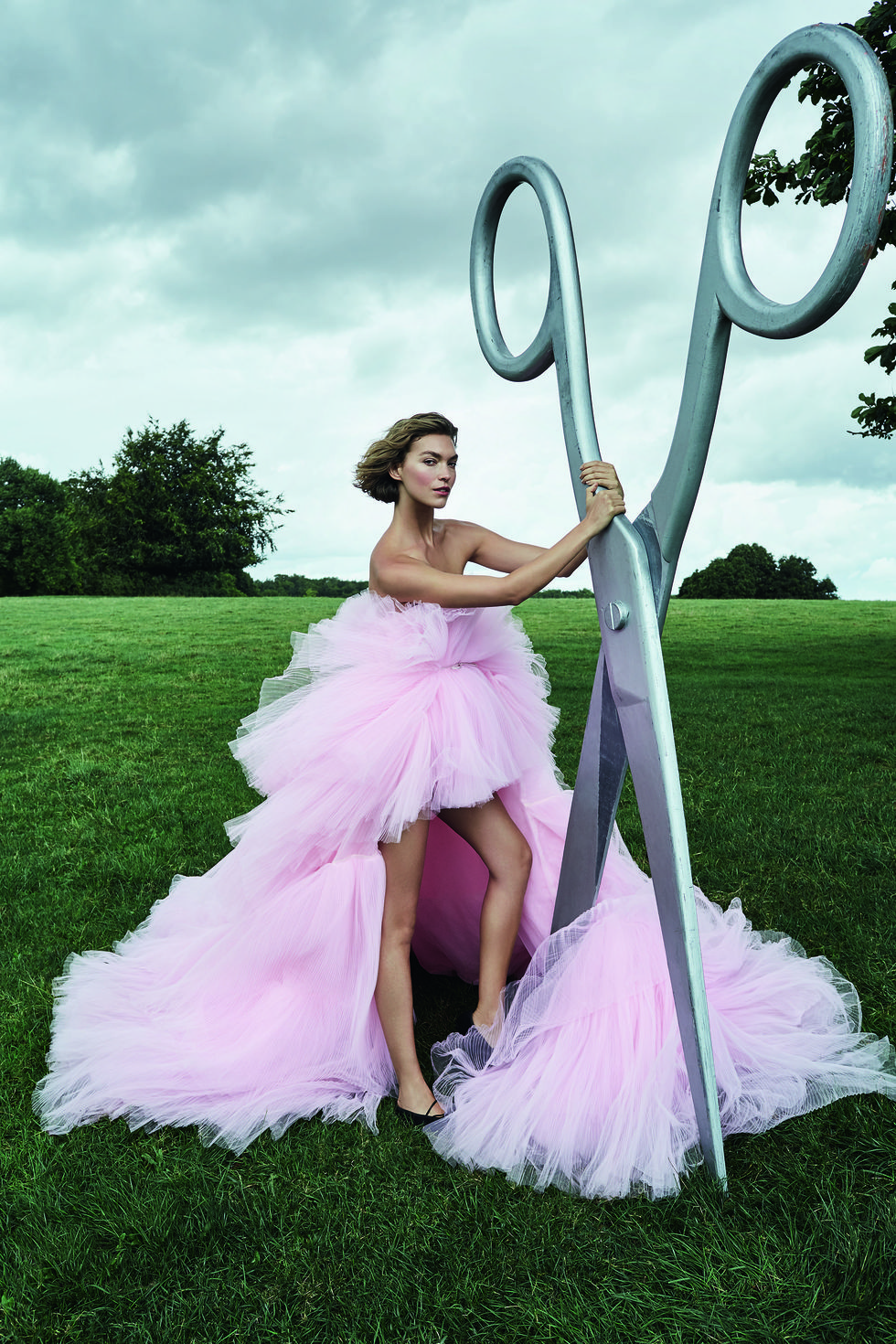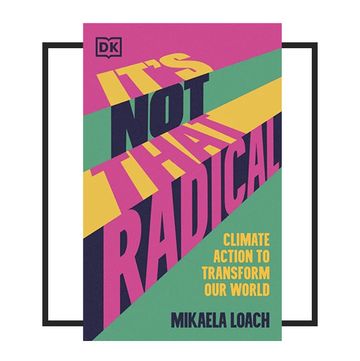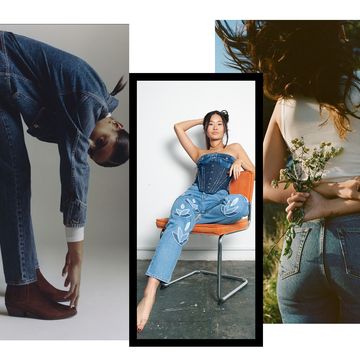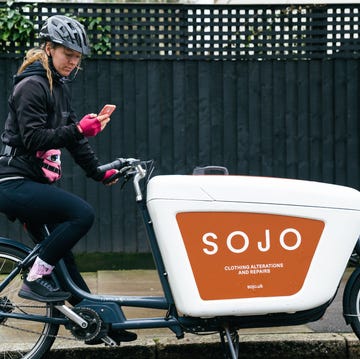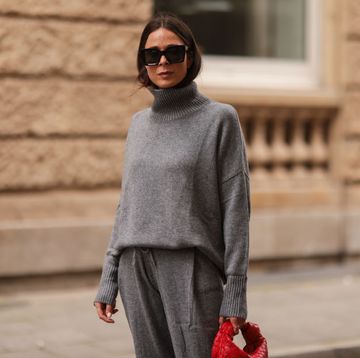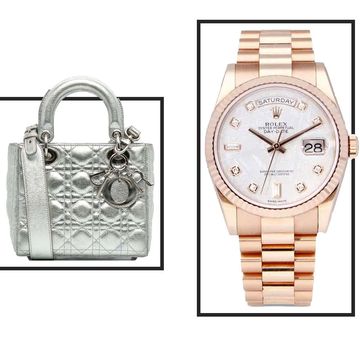Arizona Muse might be known as a model, but it's sustainability and motherhood that are her current driving forces.
“It’s so exciting this time that we live in,” she tells me, while breastfeeding her baby girl. “I feel so lucky to be a part of it.”
It’s true that the sustainable movement is in fashion like never before. More and more people care about how their choices influence the world we live in, forcing the fashion industry to reflect and change tact. Despite green, eco-focused brands having being around for years, our attitudes towards their quest have changed as the environment around us suffers.
For example, denim heavyweight G Star and Muse are currently working together with The Sustainable Angle to further research and understanding about the challenges and opportunities for fashion and sustainability.
“We think it’s all earthy and brown, falls apart and never looks cool,” says Muse when asked about the misconceptions about ethical fashion. “Those ideas were accurate maybe 15 or 20 years ago but now, especially in the last three years, there have been so many changes in the industry.”
Household names like Stella McCartney continue to work tirelessly to shake off the stigma of environmentally-friendly fashion by designing pieces that are just as on-trend and desirable as their unsustainable counterparts.
“She [McCartney] has glamourised sustainability, making it chic and luxurious and that’s really important,” says Muse adding that the label has its own research department that outsources their findings to help other brands become greener.
But, she says, the industry needs to work harder. “I think the fashion world should really step up and recognise that the government hasn’t placed many restrictions on it as an industry," she says. "It needs to self-regulate. That would be a really important measure."
It’s easy to feel overwhelmed about where to start when it comes to being more sustainable with your fashion, but here Muse shares her five top tips on how the everyday shopper can do their bit.
“Look at the label before you buy anything. Read it and understand what the materials are, because not all of them sound like wool and silk - some aren’t as easy to define. All the synthetic fabrics have really strange names that you might not have come across before and you might find yourself thinking, what does that really mean? Once you know about that then you make the right decisions.”
“Do your research and understand what impact these materials have on the environment. Think about it in a circular way, from the creation of the raw material, to the processing of the material - then to the turning it into a garment and what happens to that garment after it’s finished with.”
“Green-washing is when brands pretend to be more sustainable than they really are, by tweaking data to make yourself appear more environmentally friendly. You can’t just say ‘we love trees so we’re sustainable’. That doesn’t mean that you're sustainable; you need to be doing something for the trees in order to be able to say that you are.”
Muse encourages people to admit that they don’t understand something instead of making up a sustainable answer, because this could be more harmful in the long-run. “Whatever you say is educational and might be misleading people, which is dangerous if you don’t understand the full picture.”
“The material should be able to be processed without chemicals or with chemicals that are recycled, so they are never wasted into the river next door for instance,” She advises that organic cotton is a safe bet, because it’ll just decompose rather than harm the environment when breaking down.
“Understanding this cycle of a garment's lifetime is really important because if you don’t know it’s hard to make good decisions around sustainability.”
“Having the self-control not to buy things you know are bad is then easy, because once you know all the facts then you make the right decisions,” she explains. "I don’t deny myself anything; I just don’t buy things that are harmful to the environment because I don’t want to. My desires are what is environmentally friendly because I’ve done the research.
“You start shopping differently. You don’t want it on your skin, you don’t want it on your child’s skin and you don’t want it to go into the environment.”
“I love Swedish Stockings, I really hope other brands follow them, as you can easily use a recycled nylon instead of virgin nylon.”
“Soster Studios use such beautiful imagery and today I wore a jacket by Tiziano Guardini, who in a way makes sustainable couture-style pieces. Kitx is an Australian brand which is so beautiful too.”

